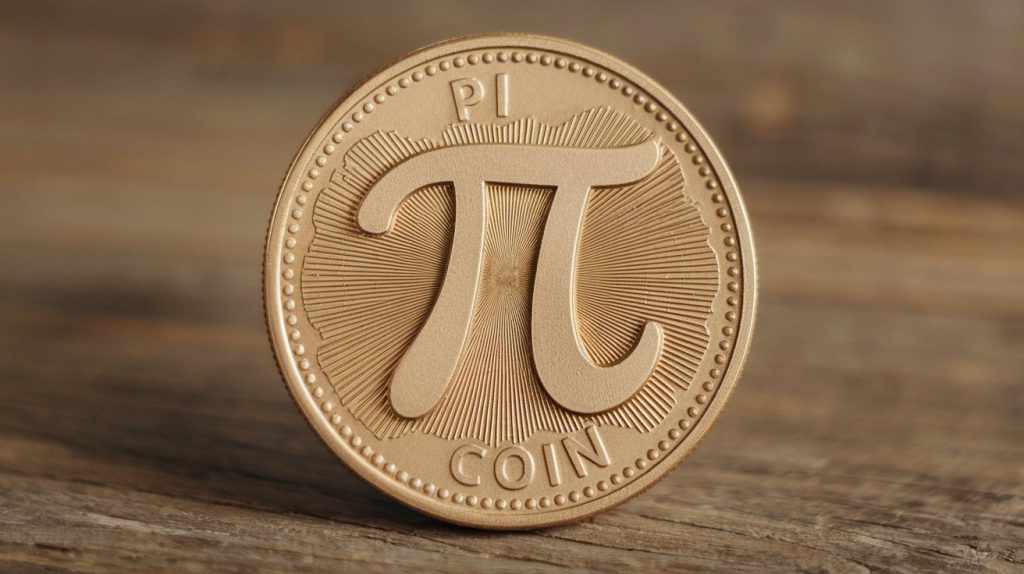Why Binance Is Still Holding Back on Listing Pi Coin—And What It Means for Crypto
Crypto's biggest exchange is playing hardball with Pi Network's token—here's why.
The Pi Coin Paradox: Hype vs. Reality
Binance's hesitation isn't just regulatory caution—it's a brutal litmus test for projects banking on viral growth over fundamentals. While Pi boasts millions of 'mined' tokens via mobile apps, its absence from major exchanges screams 'buyer beware.'
Regulatory Dodgeball
Insiders whisper about unresolved KYC bottlenecks and Pi's unproven mainnet stability. Binance won't risk another SEC-sized headache for a coin that still feels like a Web3 marketing experiment.
The Liquidity Mirage
Without real trading volume or institutional backing, Pi's valuation exists in a speculative vacuum—the kind that makes TradFi quants snort into their spreadsheets. Binance knows listing too soon could torpedo credibility.
Wake-Up Call for Crypto
This isn't FUD—it's finance. When even crypto's wild west bouncer won't let you in the club, maybe your 'next Bitcoin' needs better utility than hype. (But hey, at least the mining app has cute graphics.)
3 Elements Hindering Pi Coin’s Binance Listing
1. Governed By A Handful Of People

One of the major reasons thwarting the Pi Coin’s Binance listing is its governance infrastructure. A handful of people largely govern Pi Coin. This team actively makes decisive, fundamental choices for the token. Although often portrayed as a community-led token, the reality has been starkly different for the token. Pi Coin’s centralized control is probably one of the reasons that Binance has not listed the token on its exchange.
Pi Network continues to be primarily controlled by the Core Team, despite its claims of being community-driven, which has contributed to the prolonged delay in securing a listing on Binance.$PI Price: $.40 pic.twitter.com/BA5q2oeXrp
— clark.ron | $CAG @![]()
2. Mainnet Migration Not Completed

Pi Coin often touts itself as a coin that embraces open network abilities. However, the majority of the PI Coin transactions occur on testnet, which again is a major flaw that hinders Binance from accepting the token wholeheartedly. Without a functional mainnet, Binance is possibly being cautious; hence, Pi Coin needs to fix its mainnet issues, eliminating barriers to its Binance listing.
Consensus 2025: Towards the Quantum Era.![]() Has Pi Network compliant with Fed and SEC regulations? One of the Main Requirements for Pi Network to switch to an Open Network is to complete all aspects of Law and Compliance,which means that Pi Network has been regulated by the… pic.twitter.com/tlCdIVjWjn
Has Pi Network compliant with Fed and SEC regulations? One of the Main Requirements for Pi Network to switch to an Open Network is to complete all aspects of Law and Compliance,which means that Pi Network has been regulated by the… pic.twitter.com/tlCdIVjWjn
3. Lacks Vision, Use Cases

Pi Coin is popular, no doubt. But the token has limited use cases and offerings, which might be compelling Binance to think twice. Besides its mobile mining app, the time lacks a holistic real-world usage, one that may help PI Coin embed its vision into the tangible financial world.
$Pi will be facing one issue after another if its own CORE Team can deliver an "Open Mainnet" which is actually CLOSED months after launch.
No signs of decentralization, devs non present, more Pi yet to be unlocked, circulating supply will increase, demand slowed down.
Not… pic.twitter.com/DHVHPPLfm3

